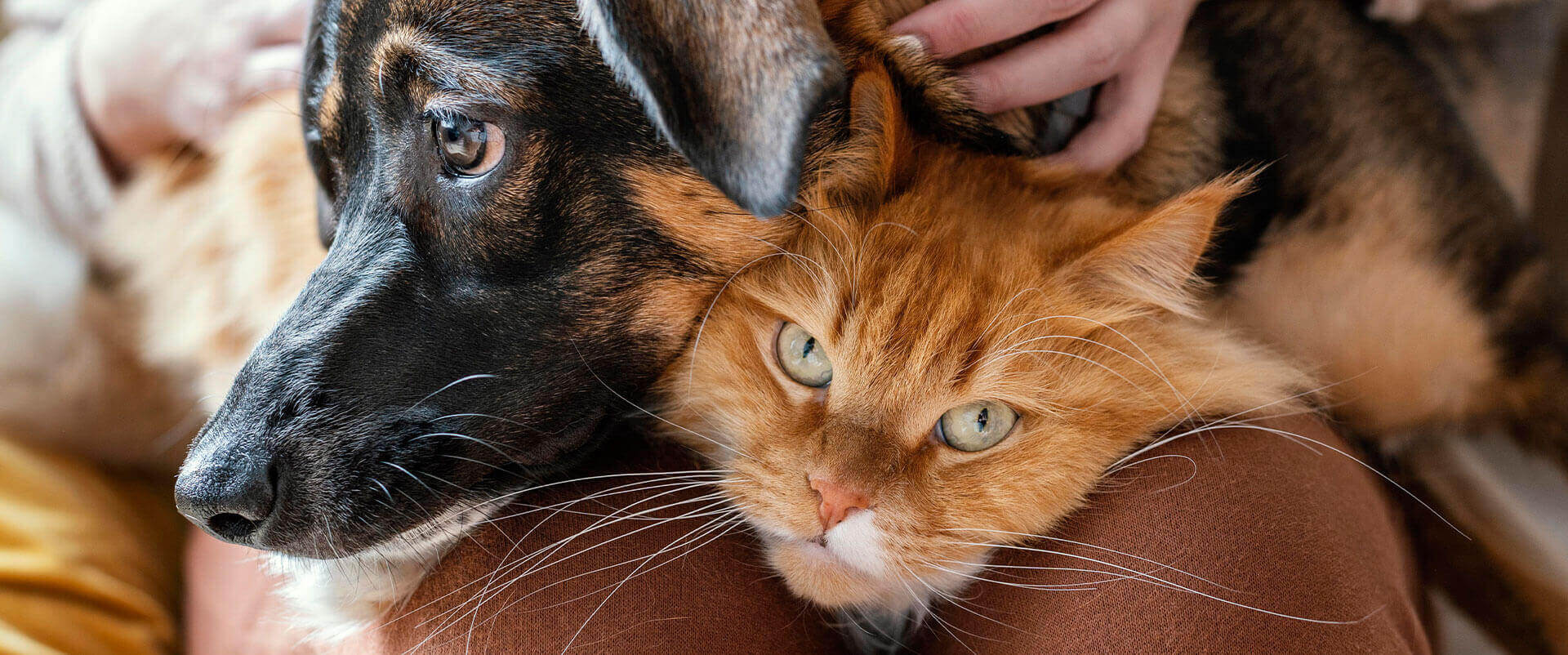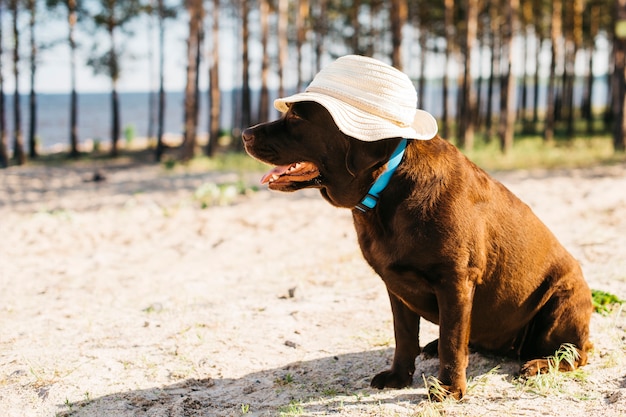Protecting Pets From Heat and Humidity in August


Protecting Pets From Heat and Humidity in August: Essential Pet Heat Safety Tips for Haddon Heights
August in Haddon Heights brings long, sunny days and high humidity—conditions that can be tough on our furry family members. As temperatures soar, pet owners often wonder how to keep their cats and dogs safe from the dangers of heatstroke and dehydration. At Haddon Veterinary Clinic, we know how much you care about your pet's comfort and wellbeing. Whether you are out for a walk in the park or relaxing in your backyard, understanding pet heat safety tips is crucial for protecting pets in hot weather, especially during the peak of summer.
This blog will guide you through the risks that heat and humidity pose to pets, the warning signs of heat-related illness, and actionable steps you can take to ensure your dog or cat stays healthy and happy all month long. We will draw on our experience serving Haddon Heights and surrounding communities, so you feel confident that your pet is getting advice from a trusted local source. If you ever have questions about preventive care or need help managing your pet’s health during the summer, our veterinary team is always here to support you. To learn more about year-round preventive health measures, visit our page on Preventative Care services to help protect your pets’ health.
Let’s explore how you can keep your pet safe from the August heat—right here in Haddon Heights.
Recognizing Heat-Related Problems: Signs Your Pet May Be Overheating
Knowing when your pet is in trouble is the first step toward keeping them safe during a hot, humid August. Dogs and cats are more sensitive to high temperatures than people realize, and heat-related illness can develop quickly. Warning signs to watch for are excessive panting or drooling, rapid breathing, bright red or pale gums, weakness, confusion, vomiting, or even collapse. In cats, subtle symptoms like restlessness, open-mouth breathing, or lethargy may appear. Some pets—especially those with short noses, thick coats, or chronic health problems—are at even higher risk.
If your dog or cat seems sluggish after being outside, or if you notice any of these symptoms, it is important not to ignore them. Pets cannot sweat the way humans do, so their bodies struggle to regulate temperature in hot, humid weather. If you suspect your pet may be overheating, prompt action can prevent a minor issue from becoming a life-threatening emergency.
For pet owners searching for a "vet near me" during a heat emergency, acting quickly can make all the difference. If you observe any of these signs, especially in the heat of the day, contact your veterinary team immediately. Our clinic is always prepared to help with urgent concerns related to protecting pets in hot weather.
Why August Heat and Humidity Are So Dangerous for Pets
It is easy to underestimate how the August weather in Haddon Heights impacts pets. Dogs and cats do not sweat efficiently; instead, they rely mostly on panting or limited sweat glands in their paw pads to cool down. Humid air makes it even harder for them to release excess heat, increasing the risk of overheating.
Several factors contribute to heat-related problems in pets. High outdoor temperatures, poor ventilation, and lack of access to fresh water all play a role. Breeds with short snouts, such as Bulldogs, Pugs, and Persian cats, are especially vulnerable because their airways do not allow efficient cooling. Age is another factor; older pets and puppies or kittens are less able to tolerate extreme temperatures. Additionally, overweight pets or those with heart or respiratory conditions can struggle more during hot spells.
Hot pavement and car interiors present additional dangers. Even on moderately warm days, surfaces can become scorching, leading to burned paws or rapid increases in body temperature. Remember, it only takes a few minutes for a pet left in a parked car—even with the windows cracked—to be at risk of fatal heatstroke.
Understanding these background risks helps pet owners take proactive steps and seek veterinary services in Haddon Heights when needed.
Professional Veterinary Treatment for Heat-Related Illness
If your pet develops symptoms of heatstroke or serious dehydration, immediate veterinary attention is crucial. At Haddon Veterinary Clinic, our veterinary professionals will perform a thorough examination and can rapidly assess your pet’s temperature, hydration status, and organ function. Treatment approaches involve cooling your pet safely, administering fluids to correct dehydration, and monitoring vital signs to prevent organ damage.
For some pets, additional diagnostics such as bloodwork or imaging may be necessary to evaluate the extent of heat-related injury. Our team can provide supportive care, oxygen therapy, and medications as needed to stabilize your dog or cat. Pets with severe symptoms may require hospitalization for ongoing monitoring and treatment.
It is vital that you do not attempt to treat heatstroke at home with ice baths or unmonitored cooling, as this can cause shock. Instead, focus on gradually lowering your pet’s temperature while arranging safe transportation to your veterinarian. If you are concerned about your pet’s wellbeing in the heat, schedule an appointment with our veterinary team to discuss preventive strategies and ongoing care. For more information on urgent summer health concerns, you can also explore our emergency veterinary care information and services.
Protecting Pets in Hot Weather: Prevention and Home Care Strategies
Prevention is always better than treatment, especially during the hottest months of the year. There are several practical steps you can take at home to protect your dog or cat from August’s heat and humidity. Always provide access to fresh, cool water both indoors and outdoors, and refill bowls frequently throughout the day. Ensure your pet has a shady, well-ventilated space to retreat to, whether you are at home or outside.
Walk dogs early in the morning or later in the evening when temperatures are lower. Avoid strenuous exercise during the hottest parts of the day, and remember that hot pavement can burn paw pads. Checking the ground with your hand before a walk is a quick way to gauge if it is safe. For cats that enjoy time outside, supervise their outdoor access and encourage rest in shaded areas.
For pets with long or thick coats, brushing regularly can help reduce insulation and improve comfort, but avoid shaving fur too close to the skin, as their coat offers protection from the sun. Watch for signs of overheating, and never leave pets unattended in cars or poorly ventilated spaces.
If your pet has underlying health conditions, is on medication, or is a breed at higher risk, talk with your veterinarian about tailored summer care. Our team can recommend strategies to manage allergies, adjust exercise routines, or provide additional support. Regular Preventative Care services to help protect your pets’ health are a great way to stay ahead of seasonal risks.
When to Seek Veterinary Care for Heat-Related Problems
Knowing when to seek professional help is critical for protecting pets in hot weather. If your pet shows severe symptoms such as collapse, unresponsiveness, uncontrolled vomiting, difficulty breathing, or seizures, seek emergency veterinary care immediately. Milder signs, like persistent lethargy, heavy panting, or refusal to drink, also warrant a call to your veterinary team.
If you are ever unsure whether your pet’s condition is serious, it is always safer to err on the side of caution and consult a veterinarian. Early intervention can save lives and reduce the risk of long-term complications. Residents of Haddon Heights and surrounding communities should remember that summer emergencies can escalate quickly. For those searching for "quality vet near me," Haddon Veterinary Clinic is dedicated to providing timely, compassionate care for all your pet’s needs.
You can find more tips and seasonal health advice on our veterinary blog with tips and pet health education resources, which covers common questions about pet heat safety tips and other important topics.
Keeping Your Pet Safe This August: Schedule a Visit With Haddon Veterinary Clinic
Summer in Haddon Heights can be a wonderful time for pets and families, but it brings unique challenges that require vigilance and care. By recognizing the signs of heat-related illness, understanding why pets are at risk, and following our recommended prevention strategies, you can help your dog or cat enjoy a safe and happy August.
Our team of veterinarians at 2 2nd Ave, Haddon Heights, NJ 08035 is always here to support your pet’s health—whether you need advice on summer care, a thorough wellness examination, or immediate help for heat-related issues. We encourage you to schedule an appointment and ask about our preventive health programs designed for the unique needs of pets in Haddon Heights and surrounding communities.
If you are searching for a "vet near me" who truly understands the challenges of protecting pets in hot weather, look no further than Haddon Veterinary Clinic. Reach out by calling (856) 263-2888 to speak with our veterinary professionals or request an appointment online. Your pet’s safety is our top priority this August and all year round. For more information on keeping your beloved companion healthy through the seasons, visit our Preventative Care services to help protect your pets’ health.
Disclaimer: The information in this article is intended for educational purposes only and should not replace professional veterinary advice. If you suspect your pet is experiencing a heat-related emergency, contact your veterinarian immediately.

.png)

















